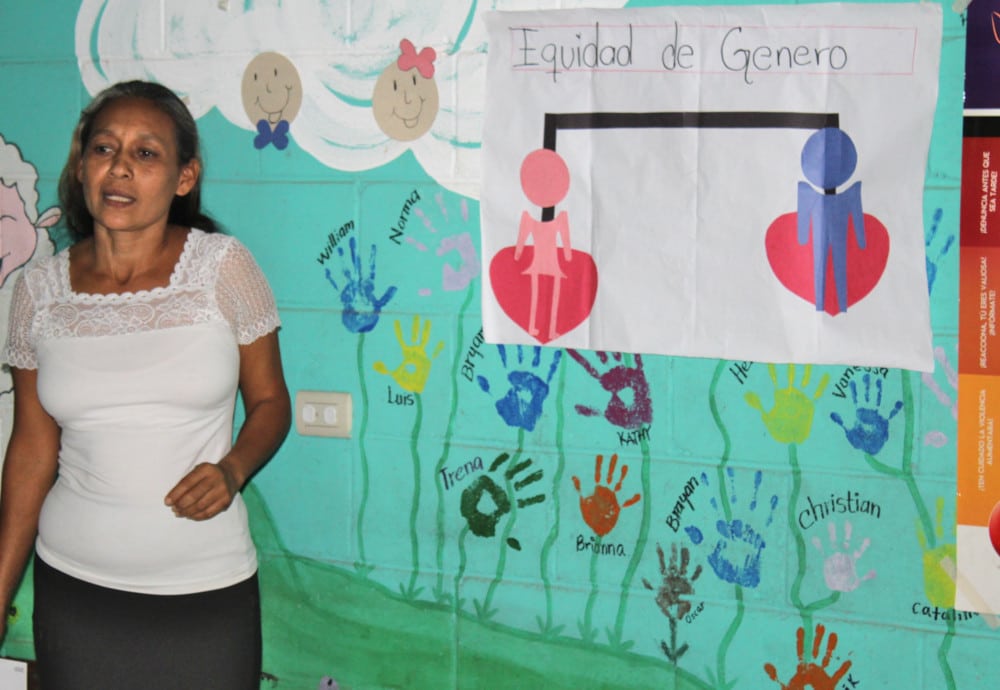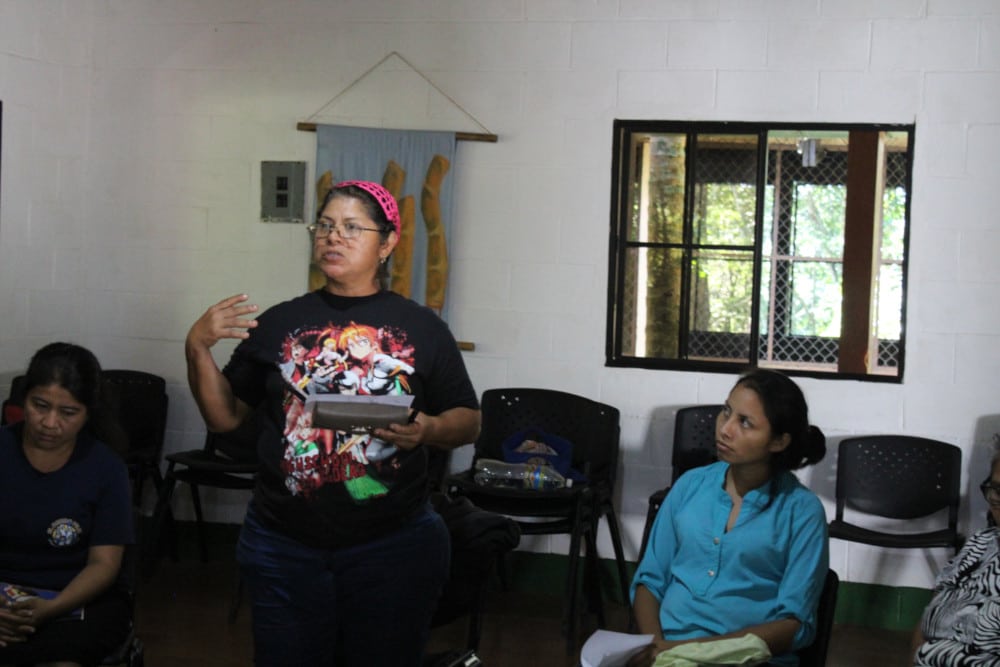Calladita te ves más bonita. You look prettier with your mouth shut. How many are familiar with this phrase?
Here in El Salvador this phrase is commonly heard among women’s groups as a subtle reminder of two things:
1) Women should aspire toward being “physically beautiful.” Keeping opinions to yourself is one of the ways to achieve this aspiration.
2) A woman who does not have thoughts… is prettier because she does not bother others, she does not ask for things, and she does not demand rights.
A mandate of submission exists in society; meaning, an unwritten order for women to submit, to accept what others propose and disqualify their own opinions and those of other women. This mandate of submission then becomes a gateway for violence against and oppression toward women on many levels.
It is common to hear, among women themselves, that when women get together it is to talk about seemingly superficial topics (fashion, soap operas, other people, etc.) and that they are, in a few words, “wasting time.” This way of thinking often keeps women away from most group settings, except that of church groups.

It is common for women living in vulnerable situations to not have a group of friends where they can go if they have a problem. Most often, women socialize with others only when completely necessary because if they spend too much time away from home “they’re not prioritizing the care of their family.”
It is said that women talk a lot, which is not true. The narratives explained above, reflect only the ideals of patriarchy, that the private world is for women and the public world for men.
A woman who dares to break this order is seen as leaving the role assigned to her by society. She runs the risk of not being listened to, not having her opinion taken seriously or being compared to the masculine traits in a negative way… “she speaks like a man.”
When a woman decides to participate in the Women’s Empowerment Project (WEP), most women find it intriguing, but they immediately think of the multitude of obstacles they will have to overcome to be able to attend.
With expressions like “I’m going to ask ‘him’ (that’s what women’s partners are usually called),” or “I hope he gives me permission,” women are referring to the first barrier that they will need to overcome: the questioning from their spouses about why they want to join the program. Many will ask “Why are you going to go join? You’re too old to study and you have household responsibilities.” The second barrier, which usually comes after getting “permission” to join the Project, is the condition that, before attending, all household responsibilities must first be complete.
Can you imagine the challenge of listening to your own voice when, for years, you have been taught to be silent? This is how women in the WEP confront and challenge the societal expectation to remain quiet.

At first, this is scary, which is why we start with surface-level questions that everyone can answer (your name, the weather, etc.). Little-by-little, starting from these topics, a deeper conversation is fostered, and space to open up and discuss empowerment-related subjects emerges.
The challenge and priority of the WEP is to create a safe space, in which the participants can dedicate time to understanding their living conditions and identifying what they want to change about these realities. Sometimes the women enrolled in the WEP are the only people outside of one’s family where women can open up and express their thoughts, without fear of being judged.
Would you like to support women who are emerging from a tradition of silence and for more women to be able to discover what having a voice feels like? You can get involved by donating to Programa Velasco or by sharing this information. Help stories like the one you just read become the face of empowered women.



